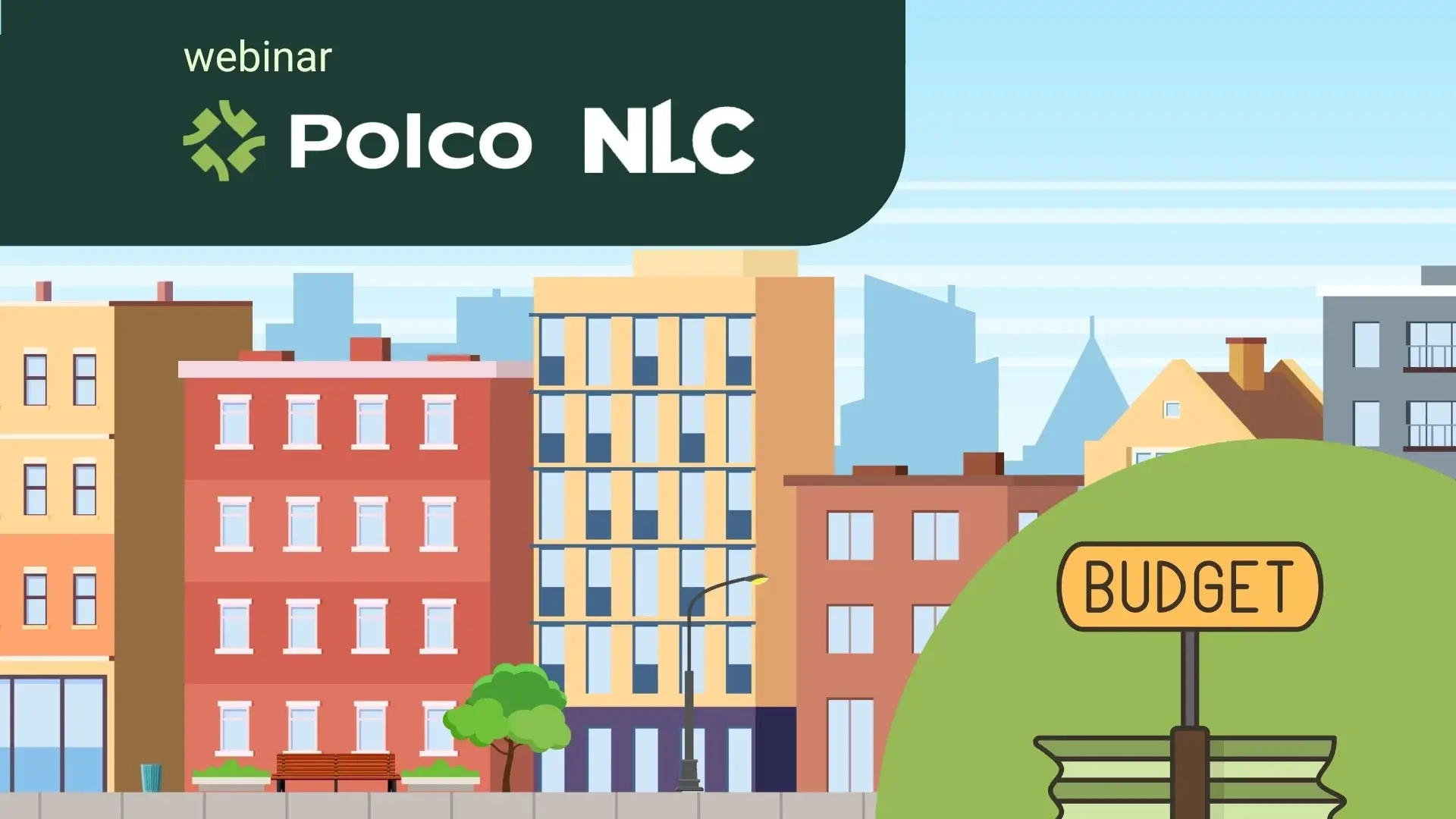How Residents Can Help You Make Tough Local Government Budget Decisions
By Polco on March 21, 2024

Using the resident voice to make intelligent budget trade-offs.
What do you do when a tight budget forces project and service cuts that many community members love?
The weight of these difficult local government budget decisions does not have to fall on the city management and budget offices alone.
Resident input can relieve some of this burden and help you build support and empathy for challenging choices.
Government Finance Officers Association's (GFOA) Rethinking Budgeting initiative says resident engagement is a critical step to better budgeting.
But most organizations overlook resident engagement in budgeting because they don't have the capacity to do the outreach and analysis. Some may think that residents are not informed enough to make these decisions.
However, budget engagement has worthwhile benefits. First, the process gives decision-makers better data. When done well, feedback shows a representative view of an entire community's priorities. That information can come in handy when budgets are lean and it’s hard to gauge what to cut or fund. Data can back up those tough calls.
Plus, new technology makes it easier for organizations to gather data while teaching residents about a city budget's realities.
 "After helping with hundreds of budget engagement initiatives," said Chris Adams, Polco's Executive Strategist and founder of Balancing Act from Polco. "I realized the goal of budget engagement should be to let residents experience for themselves how hard it is to make tough choices that impact quality of life."
"After helping with hundreds of budget engagement initiatives," said Chris Adams, Polco's Executive Strategist and founder of Balancing Act from Polco. "I realized the goal of budget engagement should be to let residents experience for themselves how hard it is to make tough choices that impact quality of life."
The Budget Simulation by Polco creates that experience and asks residents to try balancing the city budget themselves. The tool mirrors a city's real-life revenue and spending. For example, residents can see the impacts of raising fines, lowering taxes, and moving funds across different service areas.
This activity prompts community members to think deeper about what matters most to them. They realize that funding everything they want is often not possible. And they learn that saying yes to one budget item usually means saying no to something else. This fosters understanding and empathy for less-than-stellar choices.
Norfolk, Virginia, put the Budget Simulation to the test when the City faced a big budget dilemma.

How Budget Engagement Helped the City of Norfolk Find a Solution to a Large Deficit
The City of Norfolk, Virginia, faced a $13 million budget deficit. Leaders either had to cut costs or raise revenues.
Neither choice was ideal. So the City engaged residents to see what they thought.
In the simulation, city leaders added a potential new revenue stream, a 10 cent per $100 of assessed value real estate tax increase.
The simulation showed fairly even support for the new tax; 46% of residents supported the tax, and 49% said no change.
The support was enough for the City Council to move forward with the real estate tax.
The Council was surprised at just how little pushback to the increase there was, which they credited to their community engagement efforts.
"The level of outreach we did gave our city council a lot of confidence that anyone interested in the tax understood how the new revenue would be spent and why," said Gregory Patrick, Norfolk's budget director.
Ultimately, the real estate tax resulted in $18.5 million per year. This amount was enough to invest in some of the residents' top priorities, including combating sea level rise, education, and infrastructure.
The simulation has made community engagement an easy fixture of Norfolk's yearly budgeting process, and the City continues to use it to this day.
"Budgeting is about trade-offs," Adams said. "If people are only asked what they want, you get less useful feedback than if you put them in decision-makers' shoes and let them experience the challenge. Cities like Norfolk have shown that it is possible to get support from the public for big, expensive initiatives. The key is letting them discover for themselves the best ways forward."
Gain Support for Your Tough Local Government Budget Decisions With Community Engagement
High-quality community feedback data can alleviate some of the pressure finance leaders face when making budget cuts or other tough decisions. Polco’s Budgeting Simulation makes it easy for local governments to execute budget engagement. Use this data to understand what budget priorities are most important to your residents and get clear guidance from your community for making tough trade-offs.
Related Articles
Popular posts
Sign-up for Updates
You May Also Like
These Related Stories

How Edmonds School District Reimagined Community Engagement through Budget Simulations

How Community Engagement Helps Leaders Make Tough City Budget Decisions


